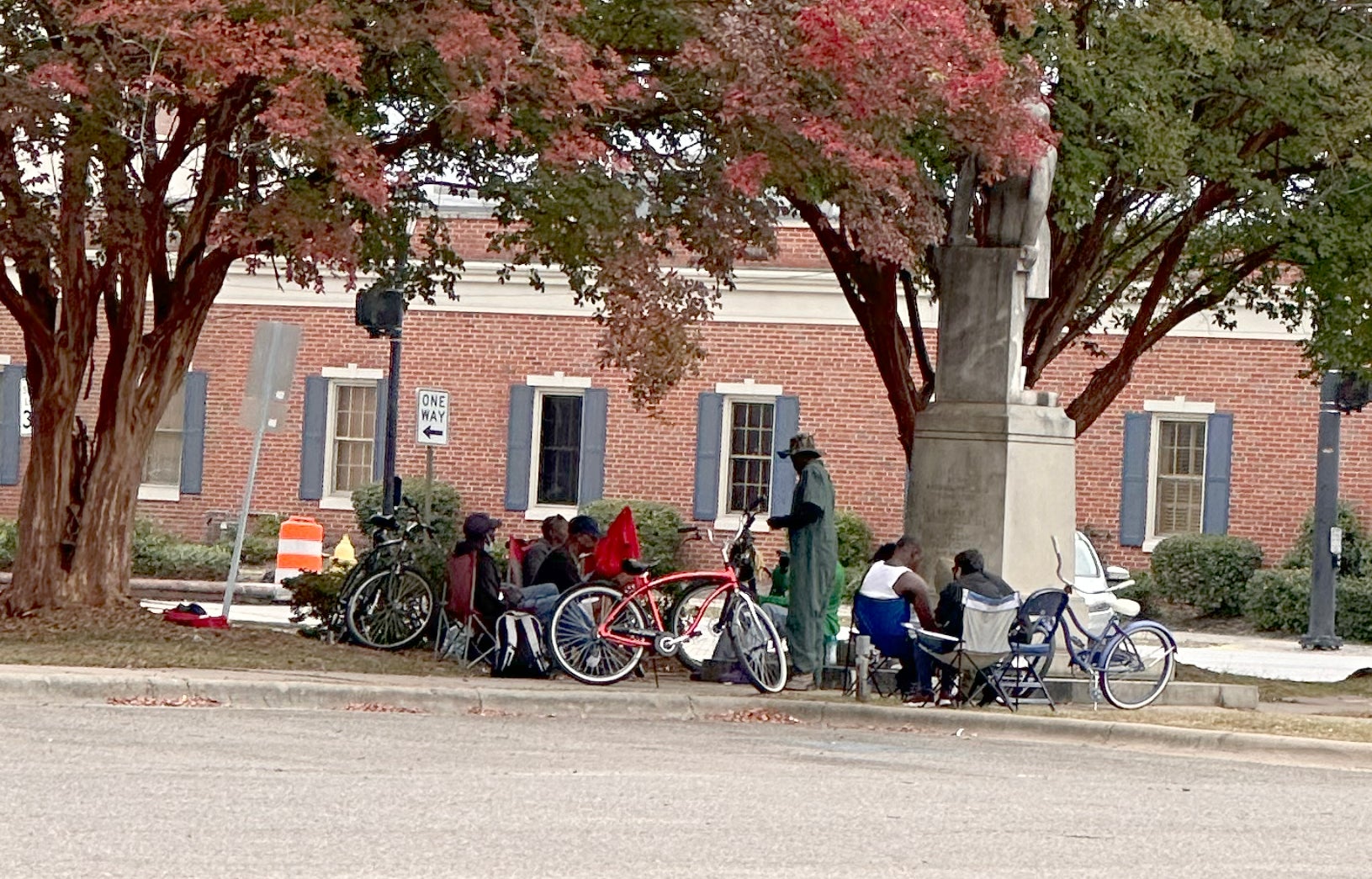Augusta leaders tried again to find solutions for panhandling and homelessness at a Wednesday workshop.
The discussion began with a First-Amendment lesson on why the city can’t adopt a ban on panhandling, followed by a presentation of what some officials could do. It concluded with a line of business owners asking for help with littering, trespassing and disruption associated with the unwanted visitors.
Augusta Housing and Community Development recently hired Tammy Ruth, the longtime community investment director for the United Way of Aiken County.
Ruth will serve as homelessness coordinator, similar to a role recommended as needed last year by Augusta’s Homelessness Task Force.
The job would involve HCD’s existing efforts to address homelessness, the new “Make Change that Counts” campaign as well as efforts to coordinate with other existing resources, she said.
Ruth said she will “play a vital role in the collaboration piece of it, making sure we are aware of what resources are available, to bring us together to collaborate to impact the lives of our homeless individuals.”
City lawyers say no to panhandling ban
On the panhandling ordinance, several commissioners questioned city attorneys about why other counties can have panhandling bans in place, but Augusta cannot.
City Senior Counsel Sam Meller said any content-based restriction on speech – such as a ban on asking for money – would eventually be struck down by the courts, and that all have been nationwide since 2015.
“What about the rights of the people that are on the roads?” Commissioner Brandon Garrett argued. “What is your suggestion?”
City General Counsel Wayne Brown compared the speech to a street preacher, who can’t be told to stop unless he does so in an unsafe or highly disruptive manner.
There are existing laws banning pedestrians from standing in traffic or on rights-of-way to avoid injury, he said.
“Whether law enforcement understands or wishes to enforce that is another matter,” Brown said.
Charleston and Columbia County, which have panhandling bans on the books “have not been challenged in court,” Meller said was his knowledge.
The UGA School of Law First Amendment clinic recently asked Columbia to rescind its ordinance.
Augusta a panhandling island
“Augusta is sitting on an island where our neighbors all around are enforcing this,” Mayor Garnett Johnson said. “We shouldn’t be the only community in the region that can’t address this.”
Interim Administrator Takiyah Douse said a day shelter probably was in order, to be funded in Sales Tax 9. Special purpose, local option sales tax 8 is projected to run out in December 2026.
A day shelter, used in other cities, is where homeless people or panhandlers might go for services in the day when regular shelters are closed.
Commissioner Jordan Johnson, who co-founded the task force, said any ban will “send a lot of people to jail.”
Chief Deputy Marshal Scott Peebles said actual enforcement in Augusta isn’t the rounding-up of panhandlers and taking them to the county jail, which Sheriff Richard Roundtree said is already hundreds over capacity.
“We are basically acting as case managers for a lot of these folks,” Peebles said. “I do not believe the sheriff would want his jail filled with people who are panhandling.”
The courts can do a lot as far as enforcing drug, alcohol or mental health treatment, he said.
Education deemed critical
Most seemed to agree that an education campaign was needed. The “Make Change that Counts,” modeled on a Savannah program, would use billboards, TV, radio and other marketing to ask the public not to give to panhandlers.
Augusta Public Information Officer Danielle Hayes said Savannah had seen a 25% reduction in complaints and 911 calls about panhandling.
Savannah also uses signs in high-frequency panhandling areas with a QR code that directs tourists to a place to donate.
Augusta’s literature will refer donors to one of several nonprofits – Garden City Rescue Mission, Golden Harvest Food Bank, the Salvation Army or United Way – which will provide a way to donate online to them.
Other agencies mentioned Wednesday included the CSRA EOA and Serenity Behavioral Health.
“Mental health is a big issue and there’s just not the resources for it,” Commissioner Sean Frantom said.
Business, cultural venues troubled by visitors
Richard Harrington from the Hilton Garden Inn on Stevens Creek Road, said homeless people sometimes use their restroom sinks to bathe, or order a meal then say they can’t pay for it. One guest was jumped while walking at night. The Hilton pays for security at night and pays private-duty deputies but still has the issues, he said.
Homewood Suites General Manager Julia Gray said her staff go out in teams to clean up trash that builds up daily. Lately they find more items such as drug needles , she said.
A Frog Hollow co-owner said the restaurant chain’s regular customers say they don’t want to come to their downtown eateries anymore. “The last few years have been very difficult with the panhandling situation,” she said.
“It’s not just someone with a cup. It’s someone in your face,” she said.
Millie Huff, executive director of Sacred Heart Cultural Center, said many come to the former church looking for support.
The venue recently spent $15,000 on security cameras, but drug paraphernalia, used condoms and luggage aren’t what wedding parties want to see, she said.













